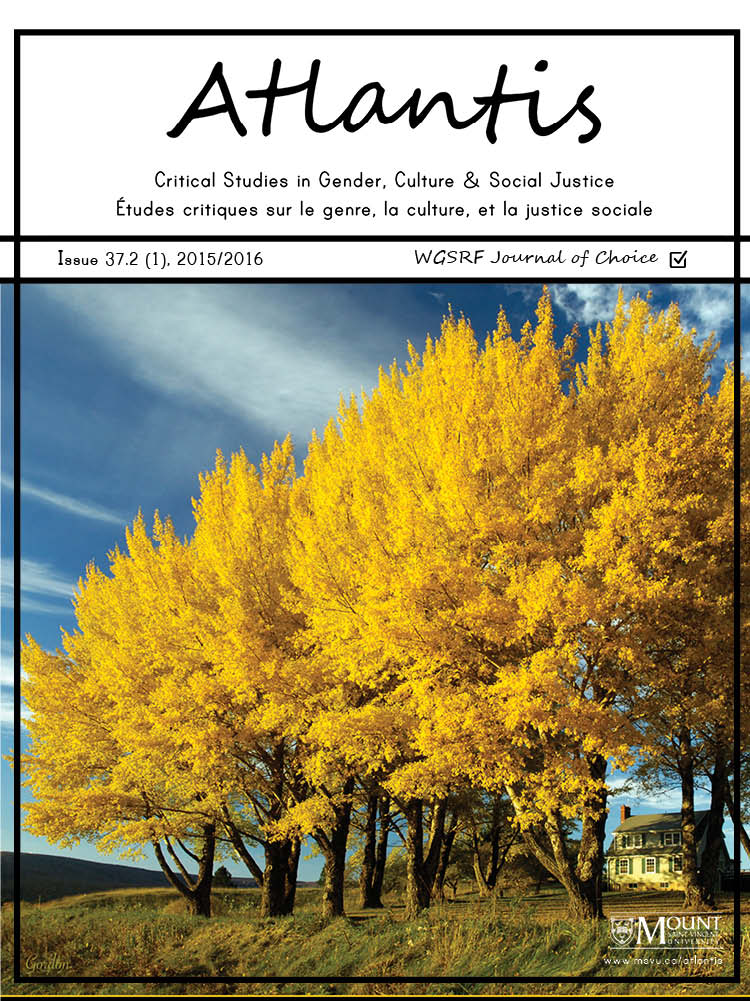What Section 15 has Achieved
Keywords:
women's movement, women judges, equality rightsAbstract
Abstract
The triumphant Canadian women’s constitution fight was a “political earthquake.” Massive lobbying efforts created or amended, inserted, and defended two sections relevant to sex equality—sections 15 and 28—in the Canadian Charter of Rights and Freedoms. Responses from both provincial and federal governments included the appointment in 1982 of the first woman justice of the Supreme Court, Bertha Wilson. A series of court challenges under section 15 resulted in a legal earthquake with respect to equal treatment for sexual preference. The presence of women justices on the Canadian Supreme Court—a political change—may produce the level of scrutiny that section 28 was intended to invoke.
Résumé
Le combat constitutionnel triomphant des femmes canadiennes a été un « cataclysme politique ». Les efforts massifs de lobbying ont permis de créer ou de modifier, d’insérer et de protéger deux articles pertinents à l’égalité des sexes—les articles 15 et 28—dans la Charte canadienne des droits et libertés. Les réactions du gouvernement fédéral et des gouvernements provinciaux ont comporté la nomination, en 1982, de la première femme juge à la Cour suprême, Bertha Wilson. Une série de contestations judiciaires en vertu de l’article 15 a provoqué un cataclysme juridique en ce qui concerne l’égalité du traitement face à l’orientation sexuelle. La présence de femmes juges à la Cour suprême du Canada—un changement politique—pourrait entraîner le degré de minutie que l’article 28 visait à invoquer.
References
Benedet, Janine. 2013. “Message from the Director,” Law Femme. UBC Law: Centre for Feminist Studies. 12:1.
Brodsky, Gwen and Shelagh Day. 1989. Canadian Charter equality rights for women: One step forward or two steps back? Canadian Advisory Council on the Status of Women.
Cameron, Jamie. 2007. “Bertha Wilson: ‘Will women judges really make a difference?’ – Listen to Justice Wilson’s Speech.” The Court. York University, Osgoode Hall Law School. 31 May.
Cossman, Brenda. 2002. "Lesbians, gay men and the Charter of Rights and Freedoms," Osgoode Law Journal. 40:223. 223-249.
Kome, Penney. 1983. The taking of Twenty-Eight. Women challenge the Constitution. Toronto: Women’s Press.
Mahoney, Kathleen. 1994. "A Charter of Rights: The Canadian Experience" Papers on Parliament No. 23. Government of Australia. September, 47-75.
Makin, Kirk. 2013. “Supreme Court needs more women departing judge says,” Toronto Globe & Mail. 2 February.
Downloads
Published
Issue
Section
License
Copyright (c) 2016 Atlantis: Critical Studies in Gender, Culture & Social Justice

This work is licensed under a Creative Commons Attribution 4.0 International License.
Authors who publish with this journal agree to the following terms:
1. Authors retain copyright and grant the journal right of first publication, with the work simultaneously licensed under a Creative Commons Attribution 4.0 International License that allows others to share the work with an acknowledgement of the work's authorship and initial publication in this journal.
2. Authors are aware that articles published in Atlantis are indexed and made available through various scholarly and professional search tools, including but not limited to Erudit.
3. Authors are able to enter into separate, additional contractual arrangements for the non-exclusive distribution of the journal's published version of the work (e.g., post it to an institutional repository or publish it in a book), with an acknowledgement of its initial publication in this journal.
4. Authors are permitted and encouraged to preprint their work, that is, post their work online (e.g., in institutional repositories or on their website) prior to and during the submission process. This can lead to productive exchanges, as well as earlier and greater citation of published work. Read more on preprints here.







